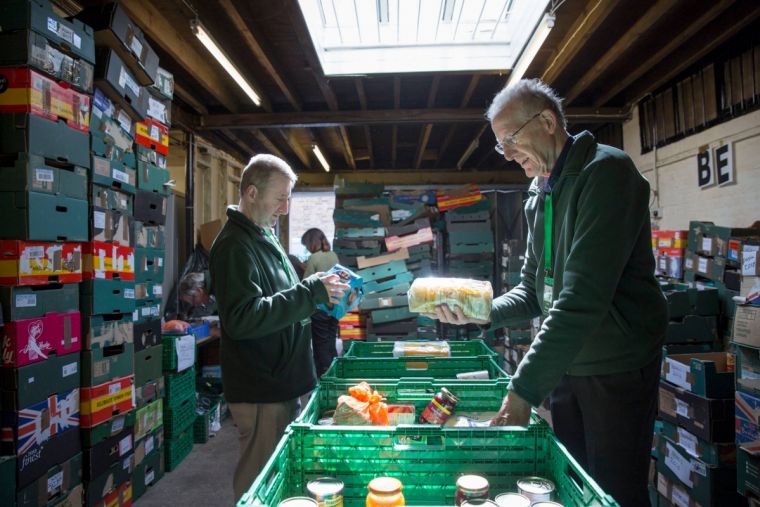Churches are reaping the benefits of secular partnerships - study

A new study has found that churches are turning to secular voluntary organisations to support their communities - and are reaping some unexpected benefits in the process.
With austerity leaving many local authority budgets squeezed and services cut, a new report from Demos reveals that projects tackling poverty account for a third (32%) of the partnerships forged between churches and non-faith voluntary organisations.
The report, called Holy Alliances, said: "Driven by the 'pull' of austerity and the 'push' of a more social theology, more and more churches are finding creative ways to partner with secular organisations on social action projects."
The study found that churches were four times more likely to turn to a secular charity (23%) for collaboration than a local business (6%).
They were also more than three times as likely to partner with a secular organisation than a non-profit of a different faith.
The study found that secular partnerships have had a positive impact on churches, enabling them to access resources and funding that might not otherwise have been available to them.
When churches were asked why they chose a particular partnership, nearly a quarter (23%) said it was because of "funding and more resources".
Partnering with secular organisations was also found to have helped churches extend their reach and receive additional administrative support.
Church-run food banks, in particular, have benefited from partnerships with local supermarkets that have made it possible for people to donate items as they shop.
In the sphere of employment, St Peter's Church in Bethnal Green, London, has forged a close relationship with the local Job Centre.
It runs a programme called 'Spear' created by the Christian charity Resurgo to help young people find work and has been so successful that the Job Centre has awarded the church a payment-by-results contract.
"Spear Bethnal Green demonstrates that church-secular partnerships don't simply unlock resources on the secular side," the report reads.
"From the Job Centre's perspective, working with Spear makes sense as a way of tapping into the unique relational capital of the church."
At the same time, the study found that local authorities are increasingly awakening to the importance of working with churches.
"This perspective of seeking to unlock the resources of churches through partnerships is increasingly
being echoed by local authorities," the report said.
"Whilst often council have been seen as largely hostile to partnership work with faith groups, a number of local authorities are increasingly experimenting with more collaborative approaches which seem to be bearing fruit."
In light of the findings, Demos is calling upon local authorities to address practical barriers to the establishment of partnerships between churches and non-faith groups.
One recommendation is to make the funding available for social action projects more accessible to churches.
It also suggests the elimination of blanket policies that prevent working with faith groups and recommends that local councils adopt a Faith Covenant.
Commenting on the report, Sacha Hilhorst, Senior Researcher at Demos and Holy Alliances co-author said: "Over the past decade, we have witnessed a boom in church social action. Meanwhile, more and more churches partner with non-Christian organisations to amplify their work. We wanted to understand what that meant for social action and for churches themselves.
"As it turns out, it is an overwhelmingly positive experience for the vast majority, with tangible benefits such as unlocking access to funding, better access to the target group and more opportunities to scale up impact."
David Barclay, co-author of the report and Partner at The Good Faith Partnership, has said: "'Broker organisations', such as the [Christian food bank network] Trussell Trust, that can mediate between churches and secular partners are crucial in unlocking the unique local and relational capital of churches to tackle social issues at scale. If the Government are serious about tackling issues such as loneliness then they would be wise to invest in such organisations."











